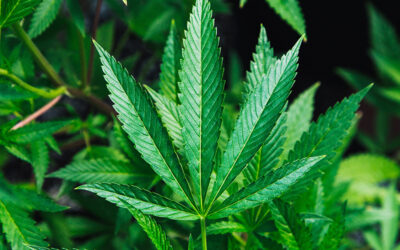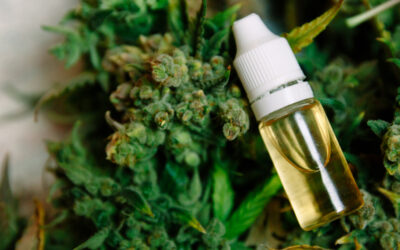[vc_row][vc_column][vc_column_text]It is the July 4th holiday, and across the country, Americans are visiting with friends and family to watch fireworks, grill out, and enjoy the many freedoms we have in our country.
The U.S. has been a nation of rebels from its inception, tossing tea into Boston Harbor, declaring our freedom from England, and then fighting for our right to break away from the empire. Americans are not unfamiliar with fighting for what we want – whether it is going to war for freedom or taking to the streets in protest.
That spirit continues today in the fight, state by state, to bring access to cannabis back to American citizens and in the lawmakers and activists who forward cannabis legalization at every step. This 4th of July, we take a moment to recognize those who are working each day to bring cannabis legalization to America.
Current Legal Status of Marijuana
Although cannabis is still illegal on the federal level, things change on a state to state basis due to our patchwork system of state cannabis legalization, due in large part to local level activists and grassroots campaigns.
Currently, 29 states have passed laws to create comprehensive medical marijuana programs for their citizens. California was the first to pass such a law with voter approved Proposition 215 in 1996, opening the door in the U.S. for further expansion of medical marijuana throughout the U.S.
Since then, several additional states have adopted medical marijuana legislation, including Alaska, Arizona, Arkansas, California, Colorado, Connecticut, Delaware, Florida, Hawaii, Illinois, Maine, Maryland, Massachusetts, Michigan, Minnesota, Montana, Nevada, New Hampshire, New Jersey, New Mexico, New York, North Dakota, Ohio, Oregon, Pennsylvania, Rhode Island, Vermont, Washington, and West Virginia. The District of Columbia and Puerto Rico also allow medical marijuana use. Sixteen other states have adopted legislation that allows low-THC cannabis oil to be used therapeutically, leaving just a handful of states without some form of legal medical cannabis use.
Medical conditions for which marijuana can be recommended vary state to state but typically include pain, wasting syndrome, the side effects of chemotherapy, epilepsy, and the symptoms of multiple sclerosis, for example.[/vc_column_text][/vc_column][/vc_row][vc_row][vc_column][vc_single_image image=”17313″ img_size=”1200×250″ onclick=”custom_link” link=”https://www.medicalmarijuanainc.com/education/”][/vc_column][/vc_row][vc_row][vc_column][vc_column_text]Since 2012, eight states, including Alaska, California, Oregon, Colorado, Maine, Massachusetts, Nevada and Washington, as well as Washington D.C. have passed ballots legalizing recreational marijuana. The amount you can possess at one time, as well as regulations, licensing, and taxes, varies between the states. As these states work out any issues that arise in establishing their recreational cannabis regulations, they ease the path to legalization for other states.
Hemp Catching Hold
Thanks to the 2014 Farm Bill, hemp cultivation is also gaining a foothold in America for the first time since WWII. The bill authorized the farming of hemp within state-level pilot research programs. The goals of these programs is to regain the knowledge and skills necessary to introduce hemp cultivation at a national level. American farmers have been integral in getting these pilot programs started, and they are relying on its success as a benefit to their farms.
At least 30 states have enacted laws to establish hemp pilot programs under state law. These states include Alabama, California, Colorado, Connecticut, Delaware, Florida, Hawaii, Illinois, Indiana, Kentucky, Maine, Maryland, Michigan, Minnesota, Montana, Nebraska, Nevada, New Hampshire, New York, North Carolina, North Dakota, Oregon, Pennsylvania, Rhode Island, South Carolina, Tennessee, Utah, Vermont, Washington, Virginia, and West Virginia.
Hemp used for commercial and industrial uses must still be imported from international sources. However, the burgeoning hemp pilot programs we see popping up across the country are intended to act as a jumping off point to a potential domestic hemp industry.
Finished hemp products created from imported hemp are legal to manufacture, distribute, and use in the U.S. These include hemp cloth, paper, canvas, rope, bioplastics, biofuels, and of course, CBD hemp oil products.
Challenges from the Current Administration
The Trump Whitehouse has proven stubborn when it comes to cannabis legalization in this country. Despite claims during his run for the Presidency that he wouldn’t touch state legalized cannabis, those Trump appointed to many of his posts are anti-legalization.[/vc_column_text][/vc_column][/vc_row][vc_row][vc_column][vc_single_image image=”17320″ img_size=”1200×250″ onclick=”custom_link” link=”https://www.medicalmarijuanainc.com/majority-americans-believe-not-worth-cost-enforce-marijuana-prohibition-poll-finds/”][/vc_column][/vc_row][vc_row][vc_column][vc_column_text]Since 2014, the Rohrabacher-Farr Amendment has prevented the use of federal funds to interfere in states passing or implementing medical marijuana policies. In essence, the amendment protects marijuana businesses and users from federal prosecution when they are in line with state and local laws. The spending budget that was passed this May renewed the amendment through September; however, Attorney General Jeff Sessions asked Congress at that time not to pass it, giving him the ability to go after state level legalization.
It is now more important than ever for those with any attachment to the cannabis industry, whether they be patients, employees, or business owners, to become activists themselves, or the hard work we have put in so far will be for nothing.
Getting Involved
There are a number of ways to become an activist for legalized cannabis.
You can contact your lawmakers, both locally and nationally, and encourage them to act on cannabis legislation when it comes before them. You can also ask them to sign on as sponsors to legalization bills.
One such piece of legislation is the CARERS Act. The Compassionate Access, Research Expansion and Respect States (CARERS) Act is a bipartisan bill that would help to end the United States’ war on cannabis.
Introduced in 2015 by Cory Booker (D-NJ), Rand Paul (R-KY) and Kirsten Gillibrand (D-NY), the historic CARERS Act would remove state and federal conflict over medical marijuana laws and allow states that have already adopted medical marijuana legislation to continue their endeavors without concern over federal prosecution.
In addition, the CARERS Act would reschedule marijuana from a Schedule I to a Schedule II substance, remove CBD completely from the Controlled Substances Act, and lift restrictions keeping veterans from accessing medical marijuana.
The bill was reintroduced in June and is awaiting action. Three more U.S. senators – Sens. Lisa Murkowski (R-AK), Al Franken (D-MN), and Mike Lee (R-UT) – joined as sponsors, and the group feel that they now have the support they need to get the bill enacted into law.
You can also join and give to local chapters of pro-cannabis organizations like NORML, Americans for Safe Access, Marijuana Policy Project, or Students for Sensible Drug Policy. These advocacy groups lobby local, state, and federal lawmakers to guide a more responsible approach to cannabis.
Finally, you can do our founding fathers proud and get out and vote in every election – both for cannabis legalization measures and for candidates like Dana Rohrabacher, Cory Booker, and others who are sympathetic with our cause.
Learn more about legalization efforts and other cannabis news on our news feed. [/vc_column_text][/vc_column][/vc_row]






